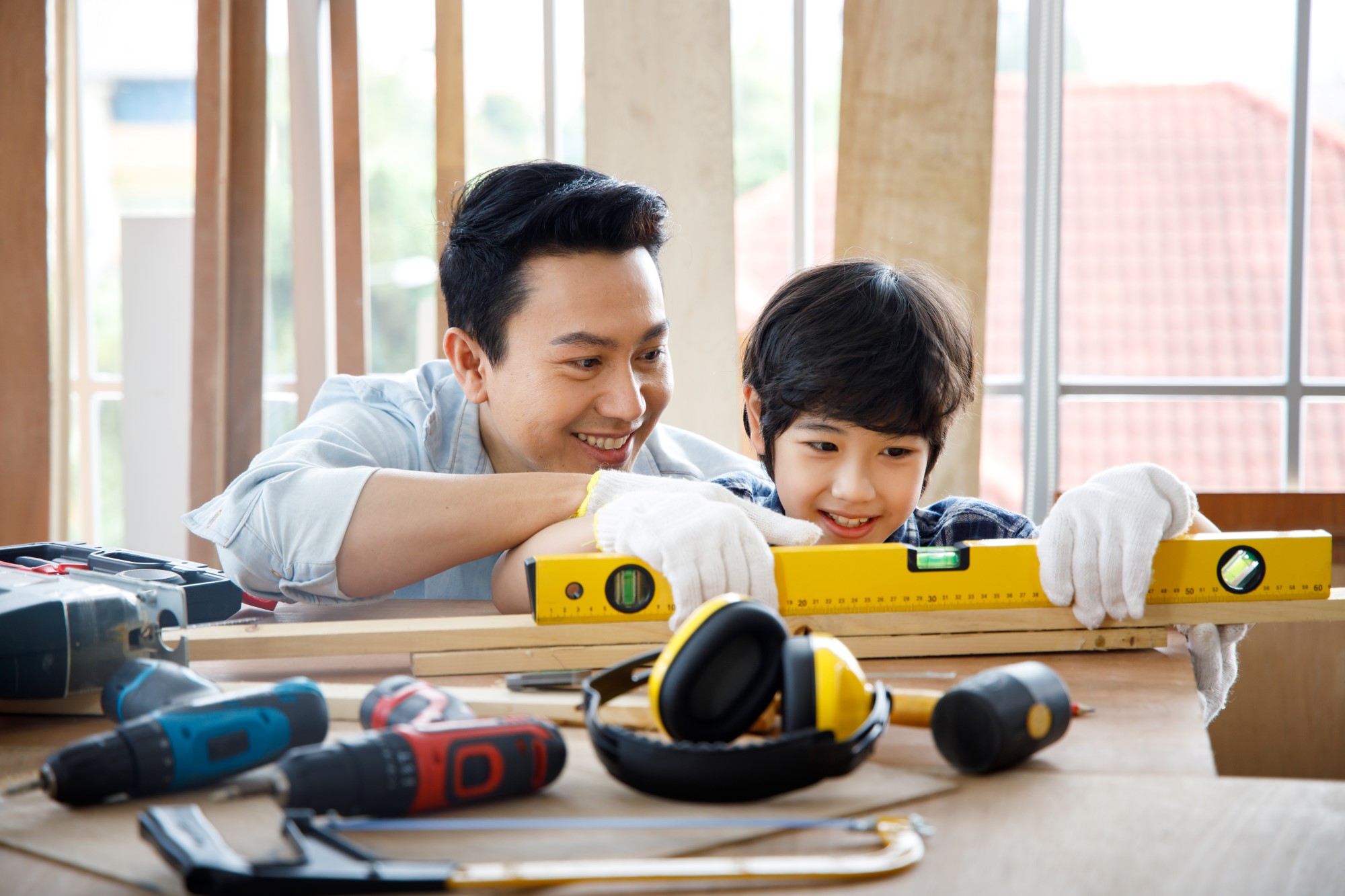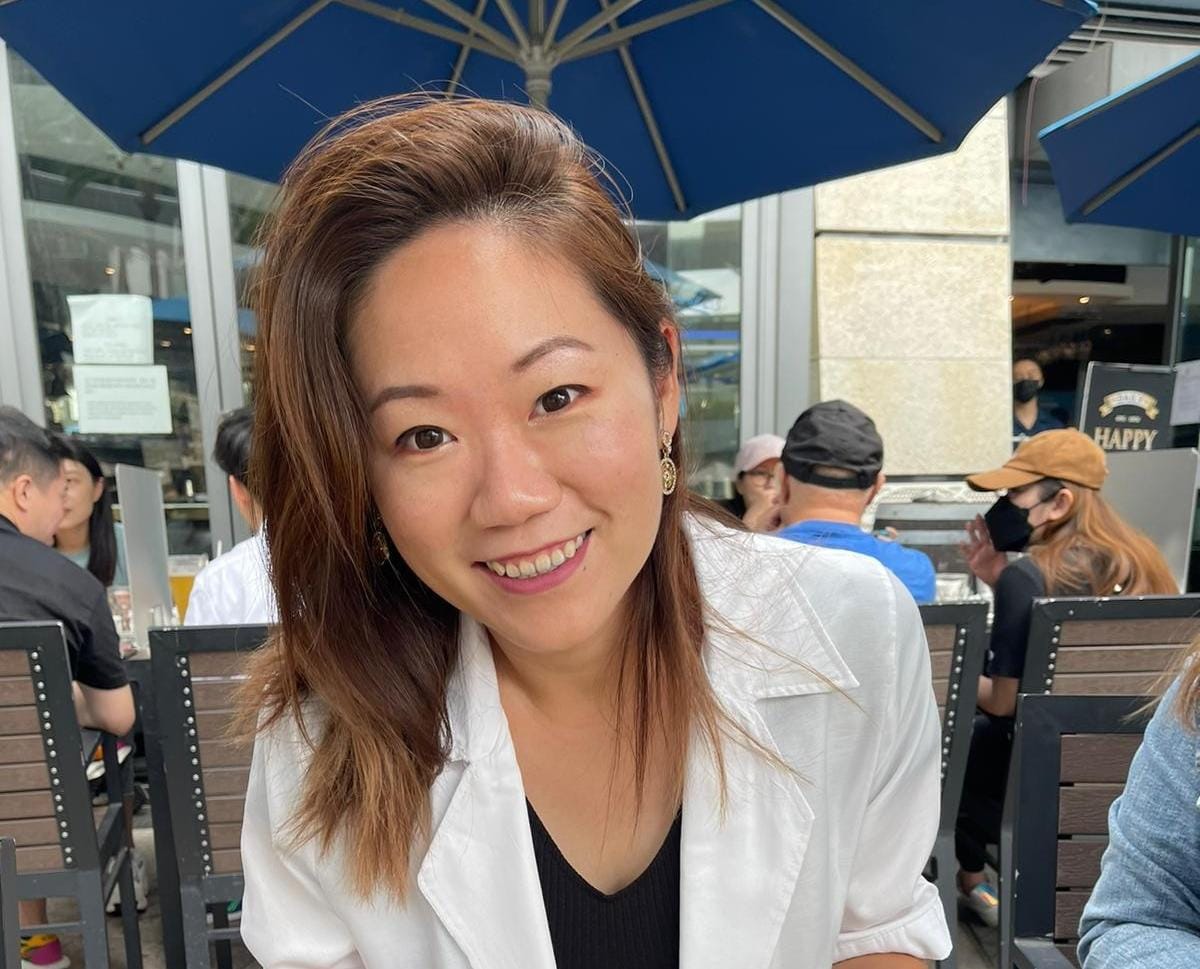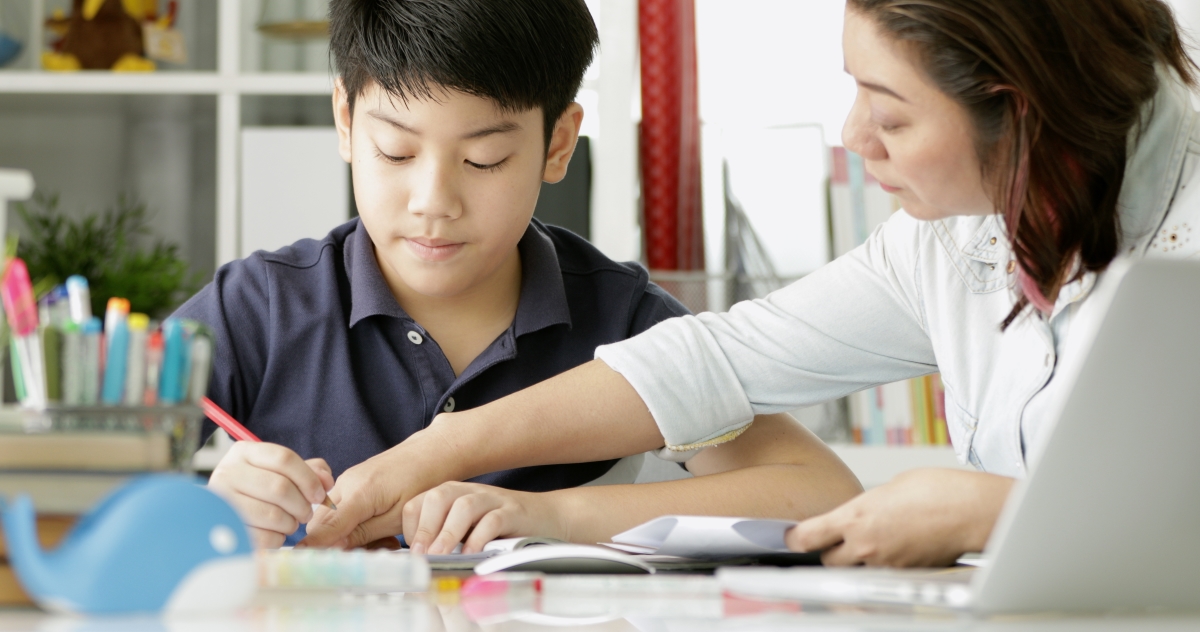By subscribing you are agreeing to our Privacy Policy
Tips for parents of children with Special Education Needs - from two SEN parents

Sharing from Clara, mum of 2 children with Special Education Needs
Life is always challenging, ours even more. However, I enjoy it.
I am a mother of 2 boys and they both have learning difficulties. One has ASD (Autism spectrum disorder) and ADD (Attention deficit disorder) and my youngest has ADHD (attention-deficit/hyperactivity disorder). I have been working in the education sector for more than 10 years and I am presently more focused on early childhood education.
My eldest boy was ‘under the radar’ for ASD when he was 2 years old and diagnosed when he was 5 years old. He was weak in social interaction, had no eye contact and had some sensory problems. He loved himself spinning around and walking on tip toes etc., however, I am lucky as his cognitive level is normal and he is verbal.
Most children enjoy playing with friends or in a group setting, however, my son enjoyed sitting at the back and just observing. He refused to engage in any kind of group activities and needed time to warm-up. For example in the Taekwondo class, he took 5 sessions to get familiar with the coach and the class routine. In the sixth session, he started to join the class. This happened when he was 3 years old.

He is now 10 years old. We learnt to provide enough time for him to prepare so that he can join a new basketball class. In the first session, he refused to go into the basketball court. We tried to encourage him or even pushed him. He told me with tears that he needs 60 minutes to get ready. We put the alarm on. He sat aside in the basketball court for 60 minutes then he joined the class happily.
This happens every time when he engages in a new environment. As a parent, I feel frustrated and embarrassed. I always ask myself how can I help more, why does not he jump into the basketball court like others do? At night, when I reflect and think of these two similar situations, actually, he is improving, just slowly.
ASD children are very sensitive to changes – environment changes, routine changes, they require time to adjust and get prepared. How can we help them as parents? We can expose them under different environments and occasions, provide and create more opportunities for their social development. For example, joining some clubs to play team sports games – rugby, football, basketball which allow them to experience team work, follow games’ regulations, interact with other children and adults, and more importantly—have an outlet for their energy. You may also consider different kinds of workshops, such as – STEAM, cooking class etc, which provide sequential instructions and allow creativity. There are a variety of classes or workshops you may search on the powerful and resourceful platform, Bizibuz. Through these classes, find classes that match your child’s interest and help them to develop further.
Parents can create opportunities to help children explore and understand the world and nature. To create a more fun and memorable activity, for example, you may provide a few locations for them to choose and ask them where they want to go, such as The Peak, Hong Kong Zoological and Botanical Garden, West Kowloon cultural park, etc. Then allow them to pick the transportation route. If they are engaged in the decision process, it will be more effective and enjoyable for them. Try to pack the bag with them and allow them to take time to manage. Possibly give them a camera and encourage them to record what they see. They will be more happy to discuss and have conversations with you. Children feel respected and satisfised by being involved in this decision making process as it also enhances their confidence level and problem solving skills. The conversations that you have enhance their conversation skill, develop their vocabulary database and strengthen your relationship with them.

Parents need to adjust their expectations of possibly having ‘accidents’ in different occasions and settings, for example, not engaging in the class, making noises in the restaurants, not wanting to get out from the cable tram or getting frightened by the sound of trees. These incidents and behaviour patterns may make you feel upset and frustrated. Please remember every single experience and try to make changes, no matter success or not. Children may not show you their improvement in 2 months’ time or even in a year, but their improvements will come when they are ready. Parents please be Positive and be Patient. More important, you are not alone.
School is the second home of children. How can parents choose a perfect school for their special child? SEN children will require a school that has relevant resources - to provide support for individual learning needs, such as joining OPRS or having an in-house learning support team. It is a great idea to join the school tour, so you may get a better understanding of the schools' facilities, quality of staff, to experience if the team is welcoming and supportive. You will also be able to inquire whether they have a home school cooperation plan and how they communicate with parents, and understand the transportation time of the school bus service. Furthermore, you may ask the current user or ex user of your target schools to get a deeper insight of the school.
Children are individuals, they are all special and unique. We need to respect our children and help them to be aware and to understand themselves. I am creating a series of books and the first is titled “I am a bit different” and has recently been launched. This series of books is targeting to 2 – 6 year old children to promote awareness of and insight into ASD. My dream is to have children like mine interact more in school, in the park, and to spread the understanding that even though ASD children are a bit different, they still need the same amount of care, love and friendships.

Connect with Clara:
Linkedin: https://www.linkedin.com/in/clara-leung-ab0270128/
Instagram: @project4asdchildren
Your SEN child, by Beverly Sace
We found out quite late that my daughter has ADD. She was 13 (she’s now 19 years old). One day I found her in her bedroom crying. We didn’t know what was wrong. I think at that time she was having some relationship problems with friends as children at this age do.
So we brought her to a psychological centre to get assessed. It was a gruelling 2 days of tests with two psychologists- clinical and educational.
When we got the report, she was diagnosed to have ADD. The inattentive kind of ADHD may manifest as difficulty in reading facial expressions as well and this could have been a reason why she may not have been able to read facial cues well at school.

On the school front, I thought that waking up at 6am and coming back at around 4, for a quick nap only to wake up again to do homework until midnight was ridiculous. Children with ADHD sometimes take longer to do their homework. I withdrew her from a famous Band One school. I could not watch her struggle every day. She was in Form 2.
We looked for a British homeschooling programme. Having studied in the British system gave me confidence that a British curriculum would be more supportive as everything is systematic, straightforward and with clear criteria. I was not wrong. She got 2A* in her IGCSEs, and 3As in her A-levels, in subjects she cared about! She told me that she has been living her life thinking she was stupid when in fact she was just brilliant! My heart really broke when I heard this. And I felt angry at the school she went to and the educational system in general. The teachers at her school did not respond to her with compassion as a special needs child but rather as a troublesome kid. As teachers, they should have known better.
Sometimes we parents forget that instead of getting our children to mold to the system that we can actually design our children’s lives so that unnecessary struggles can be eliminated, and they can thrive and be successful! I always think about this meme I see on facebook, when a fish fails school because she isn’t in water! Well my daughter is the most amazing fish in the ocean, but she was being judged in how well she walked! I am not just saying this. At the school she was at, they were being forced to take science subjects when she was not doing well in them, yet she got A* and As in Psychology, Sociology, English and English Literature?

Are you an advocate of homeschooling or sending your child to a school with SEN resources?
I do advocate homeschooling but we need to be careful in making sure our children have enough social activities every week, and that they still have a group pf friends they belong to. My daughter was allowed to meet friends each week.
Also, I would check in periodically to see if she was meeting school deadlines. Sometimes she needed help and needed someone to go through her material.
What are the most useful resources you’ve found to help educate your SEN child?
As she was diagnosed late, we worked on executive functioning skills and dealing with emotions that come with some of her difficulties.
What have been the 3 most useful resources you’ve found to help deal with broader non-educational aspects of raising a SEN child?
I think that comorbid with special needs such as ADHD is depression and other difficult emotional issues. It is important to also address these.
What is the most useful advice you would offer to parents of a SEN child in HK?

If you suspect anything at all, get your child assessed. And if you don’t, because as parents we all adore our children, that’s also okay. Two things to look out for is whether your family or your spouse’s family has a history of ADHD. Because in my family we didn’t have special needs children, I was not worried about it until my daughter got diagnosed and we realised that my husband’s family does. The other thing to look out for is teacher’s feedback. While it could be hard to accept other people’s observations, which they may be so nervous about on how to tell you as well, it could give you a heads up on something however minor that could be going on.
Also, parenting a special needs child can be isolating and difficult. Sometimes I felt that I was walking blind and doing everything wrong. Give yourselves patience as well, you are new to it too and you are doing your best!
On those special days when it all gets difficult, as a teacher, I know it is just the behaviour talking and not my child who is asking for love and understanding in a different way.
Older children need to have a say in their treatment or therapy. We don’t always have to take the psychologist’s word or what teachers say. They just want to be understood too, from their own perspective rather than laying on them what textbooks say. Every child is special and unique, and it is important that they are empowered to have agency in their lives.

Beverly Sace is a literary specialist that can help your child become an avid reader



